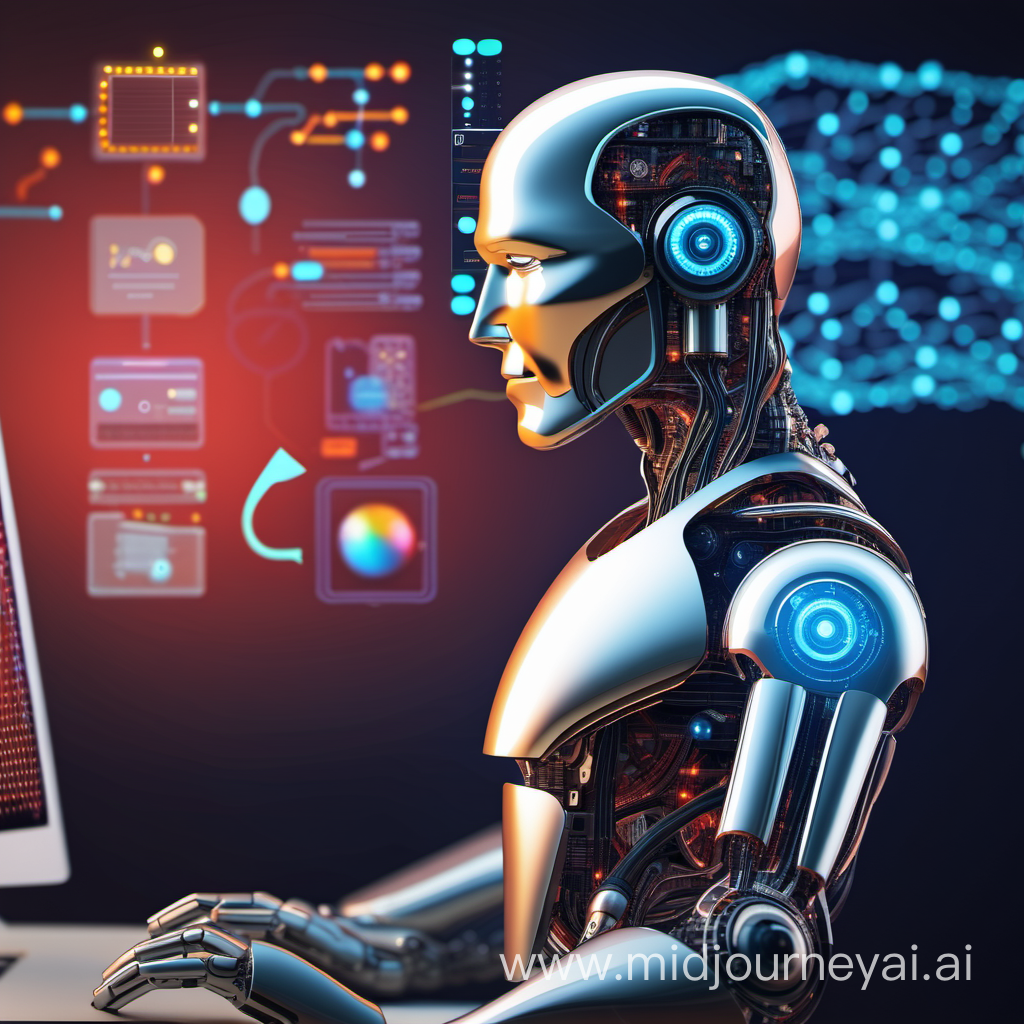RAJ BARETHIA
SOFTWARE ENGINEER, IIT BHU
Hear the term artificial intelligence (AI) and you might think of self-driving cars, robots, ChatGPT or other AI Chatbots, and artificially created images. But it’s also important to look behind the outputs of AI and understand how the technology works and its impacts for this and future generations.
AI (कृत्रिम बुद्धिमत्ता) is a concept that has been around, formally, since the 1950s, when John McCarthy first coined the term “artificial intelligence” in 1956, it was defined as a machine’s ability to perform a task that would’ve previously required human intelligence i.e. engineering of making intelligent “thinking machines”.
Our level of intelligence sets us apart from other living beings and is essential to the human experience. Some experts define intelligence as the ability to adapt, solve problems, plan, improvise in new situations, and learn new things.

With intelligence sometimes seen as the foundation for human experience, it’s perhaps no surprise that we’d try and recreate it artificially in scientific endeavors. And today’s AI systems might demonstrate some traits of human intelligence, including learning, problem-solving, perception and even a limited spectrum of creativity and social intelligence.
Despite its widespread lack of familiarity, AI is a technology that is transforming every walk of life. It is a wide-ranging tool that enables people to rethink how we integrate information, analyze data and use the resulting insights to improve decision making. Here, this comprehensive overview is to explain AI to an audience of interested observers, and demonstrate how AI already is altering the world and raising important questions for society, the economy, and governance.
An intelligent system that can learn and continuously improve itself is still a hypothetical concept. However, it’s a system that, if applied effectively and ethically, could lead to extraordinary progress and achievements in medicine, technology, and more.
HOW ARTIFICIAL INTELLIGENCE CAN HELP INDIA ?
Even as the world utilizes AI in different applications ranging from defense to self-driving cars to robotics, in the Indian context, AI is being projected as a technology for all. The Indian government is aiming to leverage AI, predominantly for inclusive development and social empowerment, to improve manufacturing, productivity, and healthcare, and enable new agricultural technologies and power.
Manufacturing
AI can help factories perform tedious tasks such as data entry and order processing, identify inefficiencies in equipment and hidden patterns in workflows, anticipate possible disruptions in supply chain, and optimize everything from product quality and production to design and operations.
Agri-Tech
AI-powered solutions, often through smartphone apps, to improve their crop yield in a sustainable manner. These smart applications allow the sector to better track the quantity and quality of the crop yield, seamlessly manage supply chain and warehousing, predict possible disruptions from weather and pests, and improve overall productivity and efficiency.
Healthcare
AI-based predictive analytics can help spot patterns; identify patients at risk of diseases and disorders such as heart anomalies and diabetes. The technology has the potential of offering personalized medical support, identifying vital signs through smart devices, boosting medical preparedness in emergencies, and enabling remote monitoring and diagnostics.
Education
AI-based education models have the power to transform our education sector. It can offer critical support to teachers, develop inclusive and accessible education models, simplify online assessments, and automate evaluations. AI applications can help track student outcomes and enable timely intervention to improve future performance.
Mobility and Transportation
AI technologies show promise in making transport safer for both drivers and pedestrians, can study historic traffic patterns and predict congestion. Therefore, reduce cost as well as the carbon emissions, and improve overall efficiencies.
Smart Cities and Infrastructure
Indian cities — home to around 40% of the total population by 2030 and integrated with smartphones – will essentially be data goldmines. By utilizing Big Data, technologies like AI can identify challenges and provide smart solutions to address complex infrastructure problems of urban ecosystems. This will make cities more efficient, sustainable, and livable for people.
INDIAN INITIATIVES
“We want India to become the global hub of AI… Our bright minds are already working towards it”, stated Hon’ble Indian Prime Minister Narendra Modi Ji in 2020, highlighting India’s goal to become a global leader in responsible AI for social empowerment and inclusion.
Here are just a few of the hundreds of Indian start-ups building AI tools and products to address national and global socio-economic challenges:
- Niramai is an AI start-up that provides affordable and fast breast cancer screening at clinics in rural India.
- Crop-In is an intuitive, intelligent, self-evolving system that delivers future-ready farming solutions to the entire agricultural sector.
- Aquaconnect is a company founded in 2017 that works with shrimp and fish farmers to increase farm production, financial access, and market connectivity.
- Gnani develops voice assistants and speech analytics products for multiple languages, including Indic languages.
- ‘e-Paarvai’ by the Tamil Nadu State Government. Developed to overcome the shortage of ophthalmologists, e-Paarvai is an intelligent AI-powered mobile application that detects cataracts.
- The MyGov Corona Helpdesk ( from MeitY). At the pandemic’s peak, with misinformation and fake news being circulated on social media about the COVID pandemic, the country’s citizen engagement platform, MyGov, the Ministry of Health and the AI startup Haptik launched MyGov Corona Helpdesk chatbot. The goal of this chatbot is to bring awareness to COVID-19 and prepare India to combat it.
IMPACTS AND CONCERNS
No technology is fail-proof. For a fruitful integration of AI and society, we also need to critically examine the issues within AI and its implementation.
- Privacy: The encroachment of technology into every aspect of our lives presents a concern for many. How far and to what extent should we allow data collection. With an AI system of strong computational power, what will these datasets divulge? The impact on humanity can be immense!
- Data Security: Incidents of accidents in driverless cars indicate the lack of emotional sensing in machines. The problem of managing and securing such a vast amount of data can be challenging. In wrongful access, it can become someone’s economic and military asset.
- Control: In an AI integrated society, a disproportionate control of data servers by a few developed countries over others necessitates the need for a global organization to step in for dispute resolutions.
- Unemployment: While AI will automate some of the more time-consuming jobs, There is a great degree of uncertainty regarding predictions, because AI is still in its infancy.
CONCLUSION
Numerous forecasts suggest AI will add USD 967 billion to India’s economy by 2035 and USD 450–500 billion to its GDP by 2025. This will account for 10% of the country’s USD 5 trillion GDP target, making it a crucial tool for economic growth.
India sees AI as a tool for social empowerment and inclusion and focuses on developing AI tools for the global south. India’s AI policy has firm roots in responsible AI principles and strives to ensure that international frameworks are designed to provide the same.
Nevertheless, we must acknowledge that AI holds immense potential for the upliftment of society as a whole. At the same time, we must be prudent to recognize the perils of ignorance when it comes to AI.


